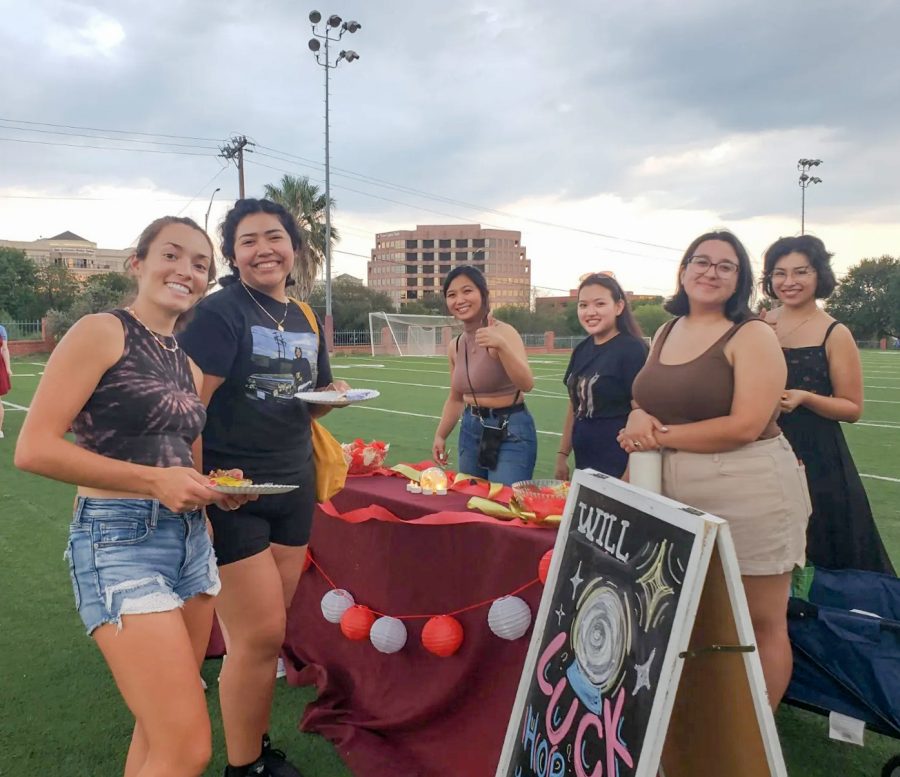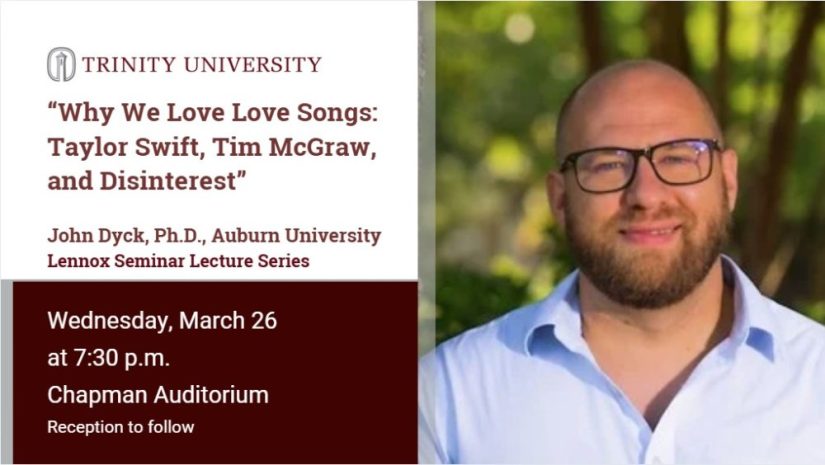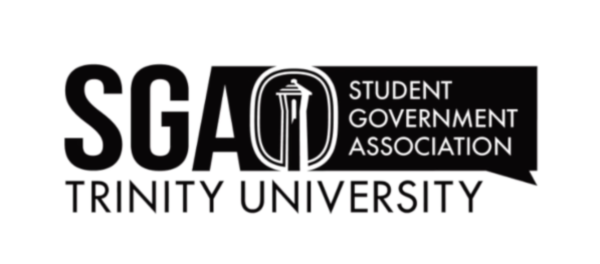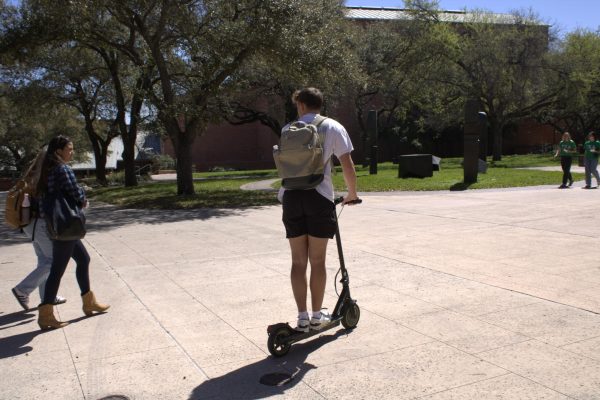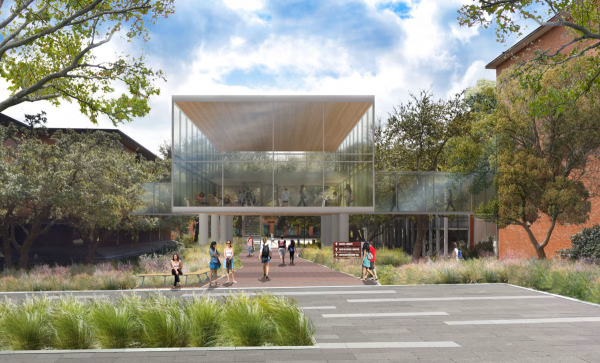October marks Filipino American Heritage Month
Filipino Student Association holds events for Trinity community in celebration
Courtesy of Filipino Student Association
Trinity students celebrate the Mid-Autumn Festival in September.
With around 4.2 million people nationwide, Filipino Americans are the second-largest Asian American group in the United States. At Trinity University, the Filipino Student Association (FSA) creates a community for those of Filipino descent and brings awareness to their culture. During this past month, FSA has been holding events to celebrate Filipino American Heritage Month (FAHM).
Throughout October, FSA hosted five events to bring attention to FAHM. On Oct. 4, they set up a bake sale outside of Coates Student Center, selling both Filipino and American desserts, including kutsinta, ube cake and brownies, to raise money for their association. They also arranged a karaoke social on Oct. 22. According to Camille Abaya, junior biology major and vice president and co-treasurer of FSA, the karaoke social was open to everyone to sing and eat with friends to commemorate Filipino culture.
“In Filipino and [Filipino American] culture, music is often synonymous with community and bonding. This social is a place where we can have fun with music and share some Jollibee [a popular Filipino fast food chain],” Abaya said.
The bake sale and karaoke social aren’t the only events that gave students the opportunity to eat Filipino food and learn more about Filipino American culture. The most recent event on Oct. 27, Halo-Halloween, allowed students to try halo-halo. Abaya explained that halo-halo, meaning “mix-mix,” is the unofficial dessert of the Philippines.
“[It’s] a cold dessert made up of crushed ice, evaporated milk or coconut milk and various ingredients including ube jam (ube halaya), sweetened beans, sago (similar to boba) [and] flan,” Abaya said.
FSA didn’t only hold events to share Filipino dishes, either. On two occasions, Oct. 1 and Oct. 15, they organized a Tinikling workshop. Tinikling is a traditional Filipino dance/game performed with bamboo sticks, and these workshops let participants learn the basic steps to it. Lexcel Penafiel, junior psychology major and president and co-treasurer of FSA, described the goal behind these workshops.
“[We’re trying] to get people exposed to it … and prepare for the performance in spring for Lunar New Year,” Penafiel said.
All of these events were created to spread Filipino and Filipino American culture, and the importance of FAHM isn’t lost on Penafiel. As she noted, having a month of awareness gives people of color a platform to celebrate their heritage.
“Media is very white-dominant [in America], [so] having my own safe space to express myself and providing more to the community is really important,” Penafiel said. “[My favorite thing about FAHM is] being able to celebrate and spread aspects of our culture to people who don’t know anything about it. It’s just so fun to share the unique parts of it.”
Abaya noted that FAHM gives Filipino Americans an opportunity to share their love for their culture with others.
“We get to celebrate [Filipino American] culture as a unique and distinct experience,” Abaya said. “It is fulfilling to recognize and represent our community as a blended experience of both Filipino and American influences.”
Filipino Americans get to celebrate their culture with FAHM, but everyone is invited to join. All of FSA’s events are open to anyone who wishes to participate. Both Abaya and Penafiel expressed their desire to spread Filipino-American culture and for FSA to grow.
“[FSA’s] goal this year is to grow our pamilya (family) on campus at Trinity, as well as increase visibility for our organization on campus,” Abaya said. “We are working very hard to grow it back again after the pandemic.”
With FSA’s desire for new members and opportunities to experience Filipino-American culture, all students at Trinity can join FSA and celebrate FAHM. As Jimena Ibarra, junior English major and PR chair of FSA, noted, people can support FSA in many different ways.
“I think one of the main ways to support is just coming out to our socials and club meetings … but it can also look like going to a family-owned Filipino restaurant or attending dance events, little things like that,” Ibarra said.
Every student can attend FSA events and support the club, and Penafiel reminds students that they’re always welcome and she would love to see support at events.
“[Participate] in the workshops and socials, [and] even if you can’t make it, [share] our posts on social media and [spread] the word. The more people know, the more people are gonna come and show support,” Penafiel said.
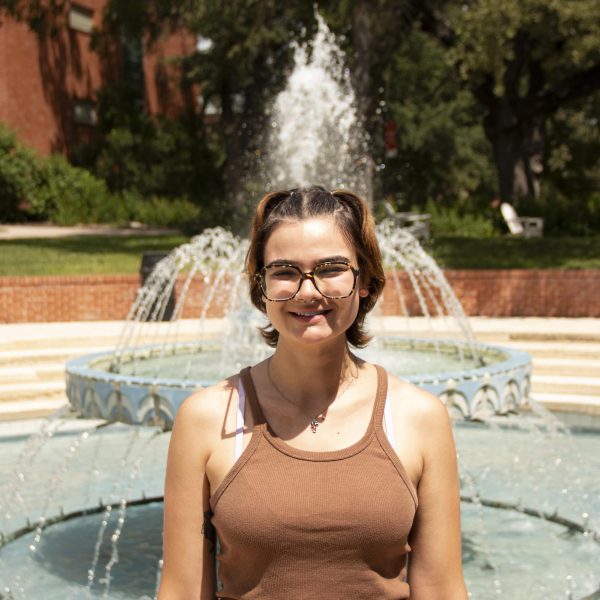
Hi! My name is Samara Gerstle (she/her), and I’m the managing editor of the Trinitonian. I’m a junior English major with minors in creative writing...

